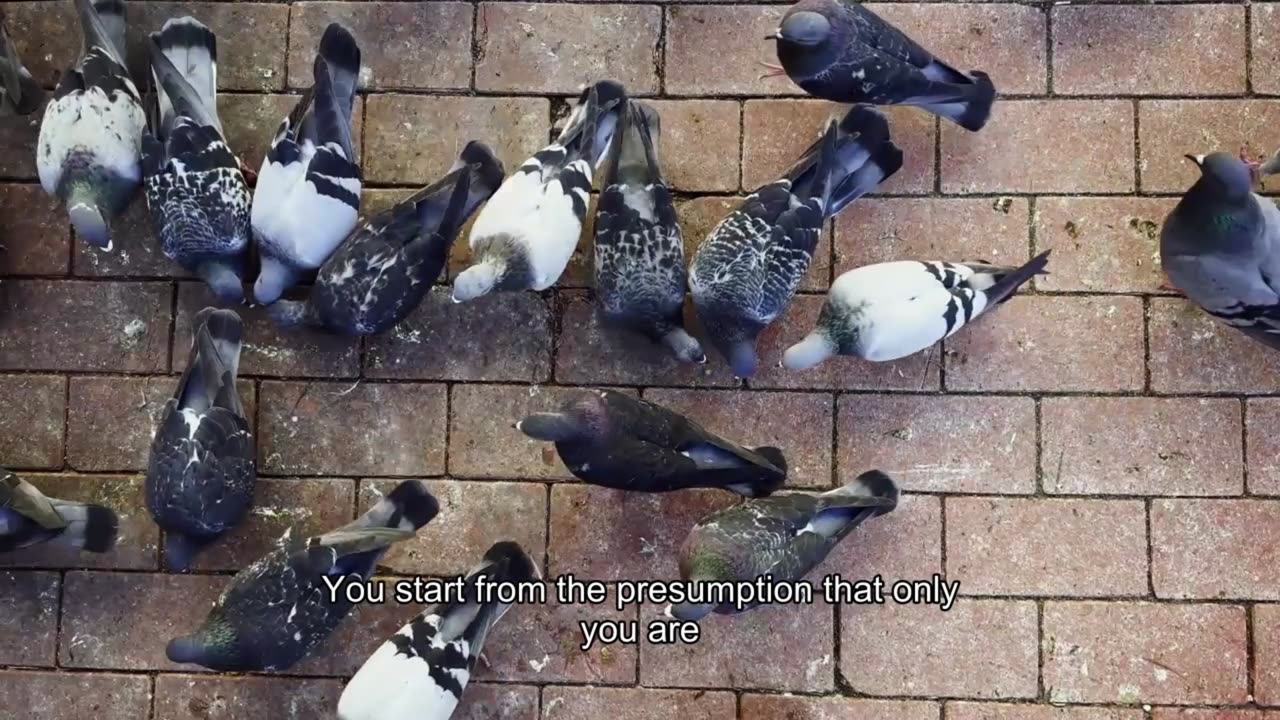Premium Only Content

Leftist Tagg's Speech - The Party - 1973
Laurence Olivier playing John Tagg in Trevor Griffiths' “The Party” If our analysis is correct, we’re entering a new phase in the revolutionary struggle against the forces and the structures of capitalism. The disaffection is widespread: in London, in Paris, in Berlin, in the American cities; wherever you care to look, bourgeois institutions are under sustained and often violent attack. New forces are rising up to throw themselves into the fray. The question is: How may they be brought to help the revolution? Or are they simply doomed forever to be merely “protests” that the “repressive tolerance” of “late capitalist” societies will absorb and render impotent? (Pause.) We shall need some theory, to answer questions like those. But I suspect the theory will not be entirely in accord with that which we have heard expounded by our comrade here tonight. (Pause.)
There’s something profoundly saddening about that analysis. And, if I might be permitted a small digression, it seems to reflect a basic sadness and pessimism in you yourselves. You’re intellectuals. You’re frustrated by the ineffectual character of your opposition to the things you loathe. Your main weapon is the word. Your protest is verbal—it has to be: it wears itself out by repetition and leads you nowhere. Somehow you sense—and properly so—that for a protest to be effective, it must be rooted in the realities of social life, in the productive processes of a nation or a society. In 1919 London dockers went on strike and refused to load munitions for the White armies fighting against the Russian revolution. In 1944 dockers in Amsterdam refused to help the Nazis transport Jews to concentration camps.
What can you do? You can’t strike and refuse to handle American cargoes until they get out of Vietnam. You’re outside the productive process. You have only the word. And you cannot make it become the deed. And because the people who have the power seem uneager to use it, you develop this … cynicism ... this contempt. You say: The working class has been assimilated, corrupted, demoralized. You point to his car and his house and his pension scheme and his respectability, and you write him off.
You build a whole theory around it and you fill it with grandiloquent phrases like “epicentres” and “neocolonialism.” But basically what you do is you find some scapegoat for your own frustration and misery and then you start backing the field: blacks, students, homosexuals, terrorist groupings, Mao, Che Guevara, anybody, just so long as they represent some repressed minority still capable of anger and the need for self-assertion. (Pause.)
Well. Which workers have you spoken with recently? And for how long? How do you know they’re not as frustrated as you are? Especially the young ones, who take the cars and the crumbs from the table for granted? If they don’t satisfy you, why should they satisfy the people who actually create the wealth in the first place? You start from the presumption that only you are intelligent and sensitive enough to see how bad capitalist society is. Do you really think the young man who spends his whole life in monotonous and dehumanizing work doesn’t see it too? And in a way more deeply, more woundingly? (Pause.)
Suddenly you lose contact—not with ideas, not with abstractions, concepts, because they’re after all your stock-in-trade. You lose contact with the moral tap-roots of socialism. In an objective sense, you actually stop believing in a revolutionary perspective, in the possibility of a socialist society and the creation of socialist man. You see the difficulties, you see the complexities and contradictions, and you settle for those as a sort of game you can play with each other. Finally, you learn to enjoy your pain; to need it, so that you have nothing to offer your bourgeois peers but a sort of moral exhaustion.
You can’t build socialism on fatigue, comrades. Shelley dreamed of man “sceptreless, free, uncircumscribed, equal, classless, tribeless and nationless, exempt from all worship and awe.” Trotsky foresaw the ordinary socialist man on a par with an Aristotle, a Goethe, a Marx, with still new peaks rising above those heights. Have you any image at all to offer? The question embarrasses you. You’ve contracted the disease you’re trying to cure. (Pause.) I called this a digression, but in a way it describes very accurately the difficulty I experience when I try to deal with our comrade’s … analysis
-
 1:58:43
1:58:43
The Charlie Kirk Show
2 hours agoCBS Steps In It + Hockey Brawl + Judicial Standoff | Yoo, Schlapp, BigTree | 2.17.2025
54.5K12 -
 1:01:26
1:01:26
The Dan Bongino Show
5 hours agoTrump Is Cancelling DEI And Cancel Culture (Ep. 2424) - 02/17/2025
595K1.32K -
 1:06:12
1:06:12
Timcast
4 hours agoDemocrat Swamp IMPLODES, CBS Runs DAMAGE Control For Democrats, Gets ROASTED By Elon | Timcast LIVE
101K122 -
 2:00:58
2:00:58
RealAmericasVoice
10 hours agoWAR ROOM WITH STEVE BANNON AM EDITION
84K18 -
 2:59:47
2:59:47
Wendy Bell Radio
9 hours agoAmerica Drops The Gloves
87.4K56 -
 1:22:27
1:22:27
Steven Crowder
5 hours agoGeorge Washington, Our First President | 3 in 3 Special
264K168 -
 1:03:57
1:03:57
Kyle Fortch
5 hours ago $1.01 earnedDJ Chill: DJing For Jelly Roll, SOLD OUT Tour, Performing at Hometown Arena | THE ONE SHEET S1E4
39K3 -
![The Deep State Spied On Trump & Sabotaged 2020 Operation To Oust Maduro [EP 4440-8AM]](https://1a-1791.com/video/fwe1/94/s8/1/F/5/k/Z/F5kZx.0kob-small-The-Deep-State-Spied-On-Tru.jpg) 4:05:26
4:05:26
The Pete Santilli Show
16 hours agoThe Deep State Spied On Trump & Sabotaged 2020 Operation To Oust Maduro [EP 4440-8AM]
59.5K3 -
 41:53
41:53
Rethinking the Dollar
3 hours agoHype or Hope? Will THE 50-YEAR FORT KNOX GOLD SCANDAL BE EXPOSED?
27.3K10 -
 1:32:36
1:32:36
Game On!
18 hours ago $9.74 earnedPresident Trump TAKES OVER the Daytona 500!
72K16